- JP
- EN
Securing and training seafarers
MOL to Establish Maritime Academy in the Philippines
Recruiting and training top-quality seafarers, who play a vital role in helping the MOL Group become the world leader in safe operation
MOL inaugurated a new maritime academy, MOL Magsaysay Maritime Academy Inc. (MMMA), in Dasmariñas City, Cavite State, in August 2018. Filipino seafarers serve as the core of the workforce serving aboard our operated vessels, and we expect them to play an even more critical role as technology advances. The academy will provide continuous training programs to develop top-quality seafarers who can hit the ground running through a four-year curriculum that encompasses basic education and specialized coursework. With our local partner Magsaysay Maritime Corporation (MMC), we plan to recruit about 300 graduates every year.
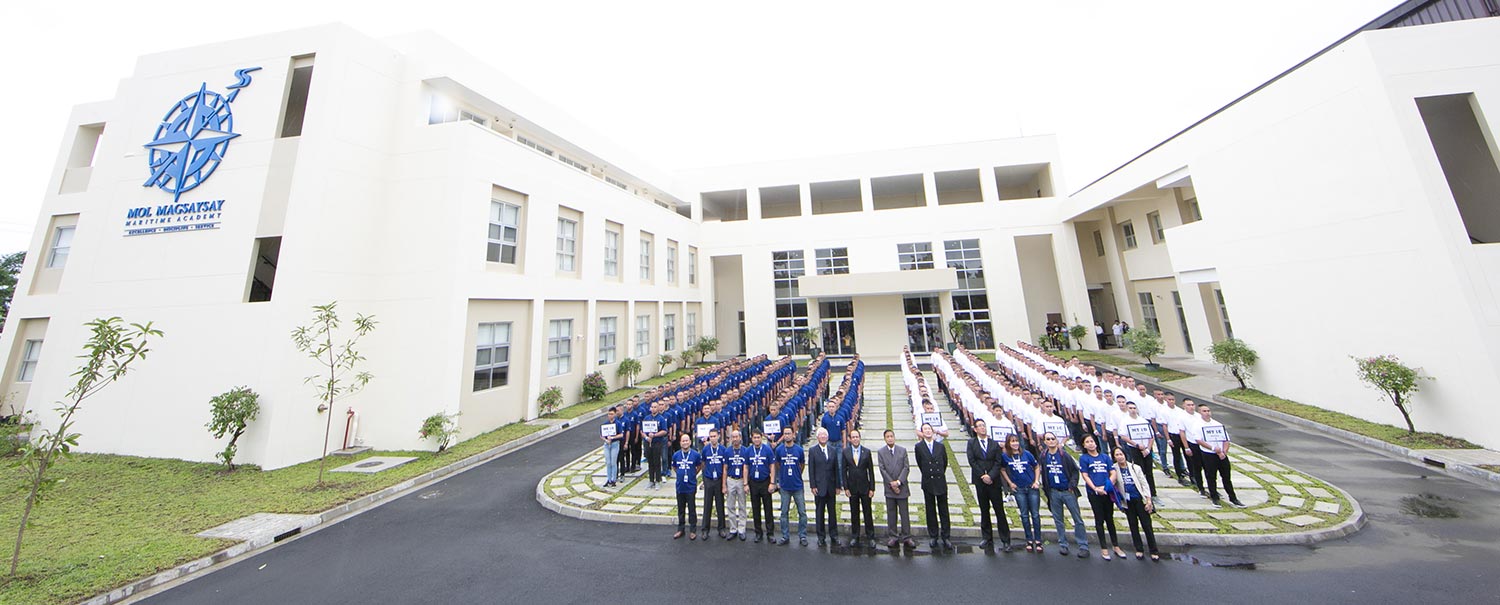
Outline of MOL Magsaysay Maritime Academy Inc.
| Name | MOL Magsaysay Maritime Academy Inc. (MMMA) |
|---|---|
| Construction site and scale | Salitran, Dasmariñas City, Cavite State, the Philippines (about 30km south of Manila) Total site area: About 13.2 ha, Total floor area: About 30,000m2 |
| No. of students | Max. 300 per year (150 each for navigation school and engine school) |
| Open | August 2018 |
| Ownership | Mitsui O.S.K. Lines, Ltd. : 40% Magsaysay Maritime Corporation : 35% Magsaysay Institute of Shipping : 25% |
Milestones of MOL's Seafarer Education and Training Programs in the Philippines
- 1980sStarts manning containerships and crude oil tankers with Filipino seafarers. Starts assignment from MMC.
- 1993Jointly establishes Magsaysay Institute of Shipping (MIS) with MMC, and starts education for new graduate cadets in addition to internal training for officers and crewmembers.
-
1997Establishes Magsaysay MOL Marine and starts seafarer manning operations through an in-house manning company.
-
2005Establishes MOL Training Center (Philippines) in MIS
-
2007Starts onboard seafarer training with dedicated instructors on the Spirit of MOL. (Over 2,200 cadets graduated from this program before the ship was retired in 2013.)
-
2009Establishes Magsaysay MOL Ship Management.
-
2011Introduces the Third-year Program under the Academe-Industry Linkage Program (AILP)* promoted by the government of the Philippines. Provides education and training at MIS, targeting third-year students selected from partner maritime schools.
-
2013Starts a cadet education program, which provides practical training on MOL-operated vessels in service, which have been specially equipped with training facilities and accommodations for trainees.
-
2018MOL Magsaysay Maritime Academy opens
(*) Academe-Industry Linkage Program (AILP): A program to help schools upgrade the education of students and enhance employment opportunities for top-quality students, based on cooperation between academia and industry.
Social Responsibility as an Educational Institute
MOL has established training centers and placed a high priority on seafarer training. These facilities are critical in helping seafarers learn about vessel operating technology and providing pre-boarding training.
What sets MMMA apart from other training centers is that it will provide students with a basic education before they become seafarers. To carry out their duties on the front lines of safe operation, they must have a solid, basic knowledge of the mechanism and structure of vessels.
They will complete a general education curriculum focusing on physics and chemistry to help them build a greater understanding of advanced technologies.
MMMA aims to become an educational institute that nurtures the personnel who will play key roles in the Philippines, by providing a solid academic education and honing logical thinking skills, in addition to training in vessel operating technology.
Developing Seafarers Who Can Hit the Ground Running
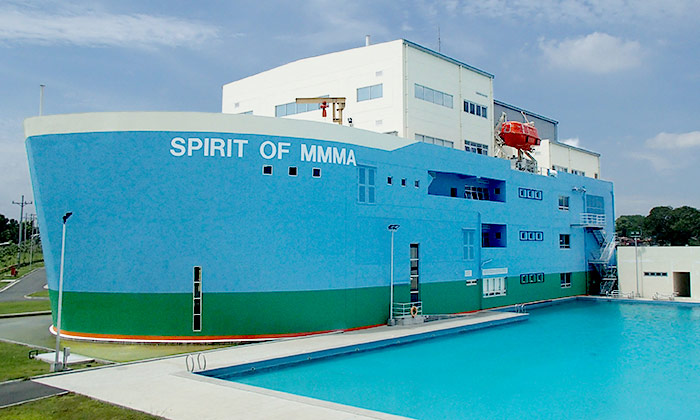
MMMA is the first in the Philippines to introduce the Ship in Campus, which simulates an actual vessel. The Ship in Campus provides practical training so graduates can hit the ground running when they complete their education. The facility enhances the drills conventionally provided at AILP, not only by replicating the exterior of the vessel, but also with cutting-edge ship equipment and systems. This ensures more realistic training for tasks such as launching lifeboats and mooring using the adjacent pool. This is one of the key advantages of MMMA.
To achieve our goal: "Becoming the world leader in safe operation," the academy trains highly competent seafarers who have full knowledge of MOL safe operation system and standards, by providing necessary education from the freshman, in addition to such trainings at the Ship in Campus. And, those skilled seafarers, accumulating many years of experience aboard our operated vessels for many years, will support our critical mission of supporting safe operation.
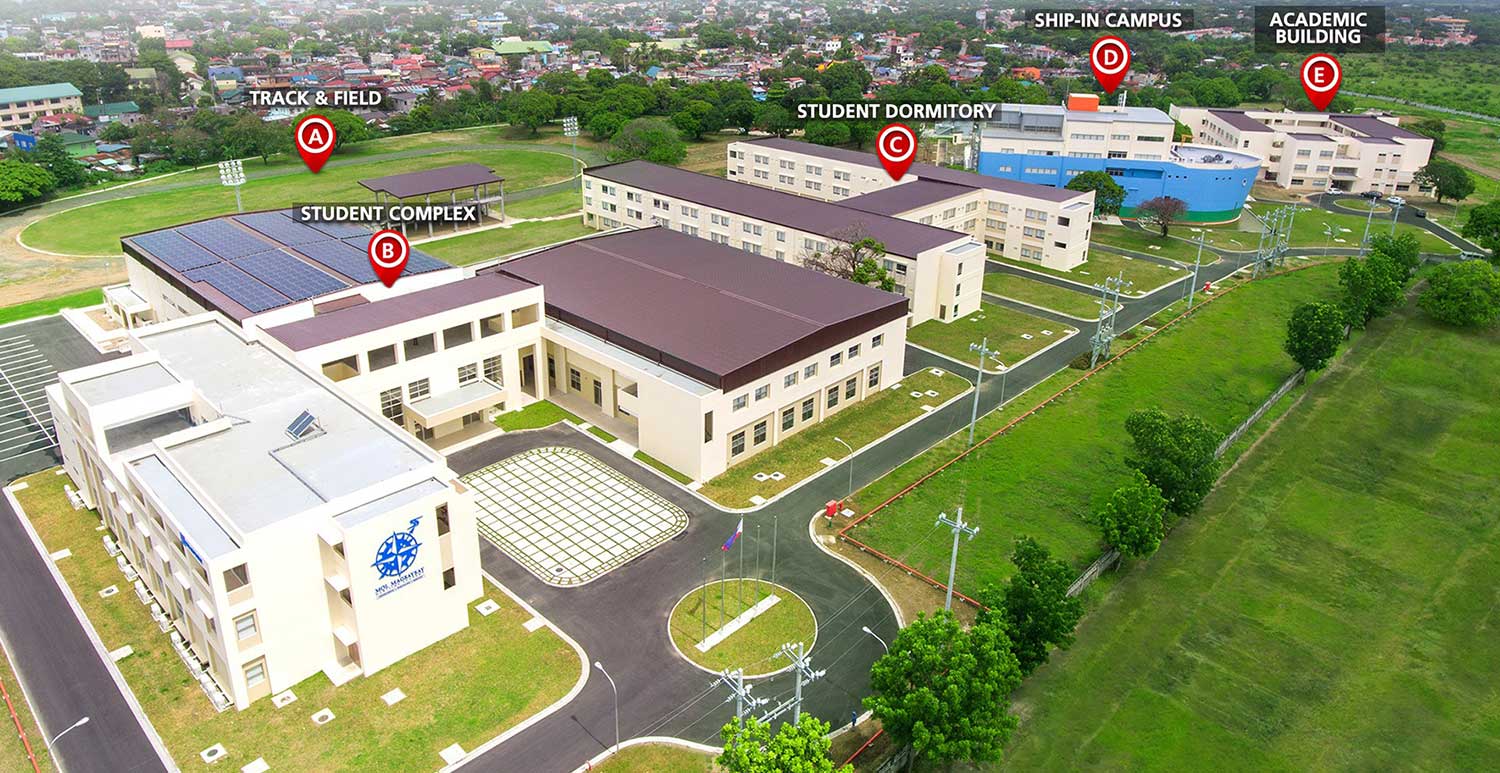
Training Highly Competent Crewmembers on a Global Scale
MOL has training centers around the world to provide crewmembers with the skills necessary to maintain safe operation. These centers provide a variety of training, ranging from classroom lectures on theory to practice using real engines and various simulators.
Details of seafarer education and training can be found on our service site.
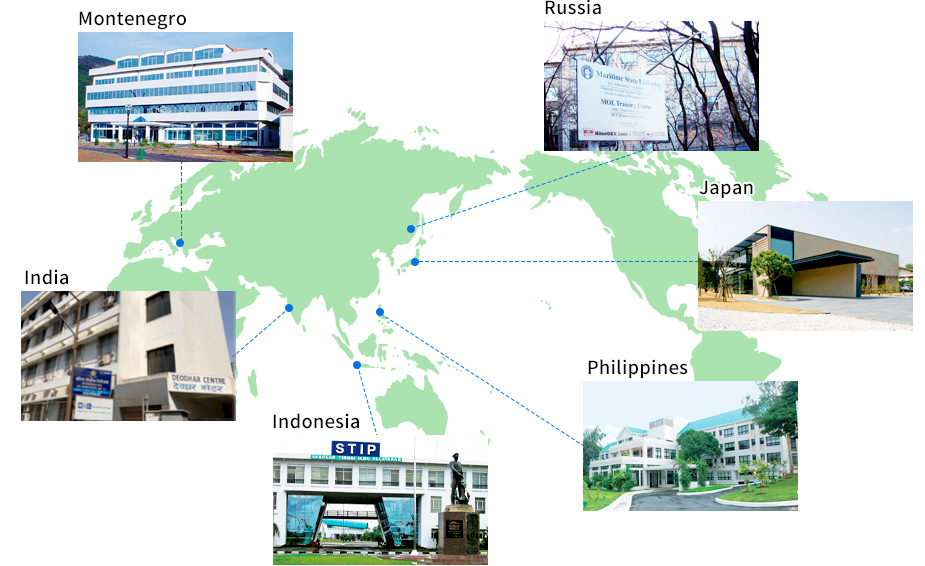
Practical Training on Vessels (New Cadet Training Program)
MOL developed a program that uses our actual operated vessels as training ships with the objective of training officers who will be ready to work immediately. Under this program, called "Cadet Actual Development for Education with Tutorial (CADET Training), dedicated instructors provide guidance to cadets aboard vessels that are actually in service. As the number of cadets is small, they receive detailed guidance from the instructors. The aim of the program is to pass on the practical navigation and marine engineering skills required by MOL as well as the spirit of dedication toward safety. By interacting with the crew, cadets can visualize themselves performing the job in the future, and at the same time crew members can mentor the cadets, with whom they will share responsibility for safe operation in the future.
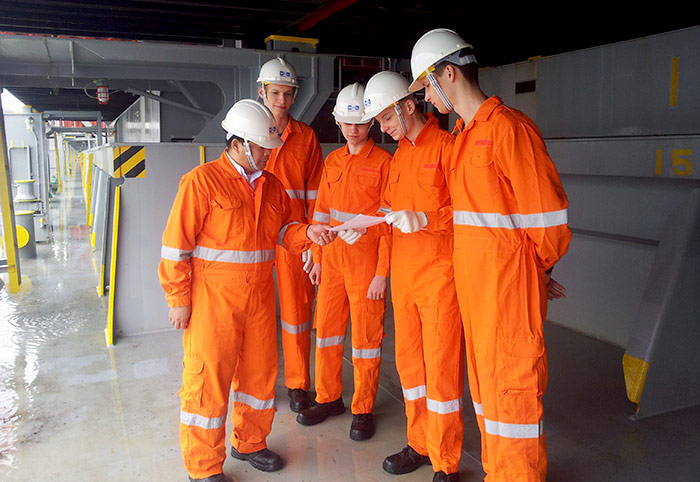
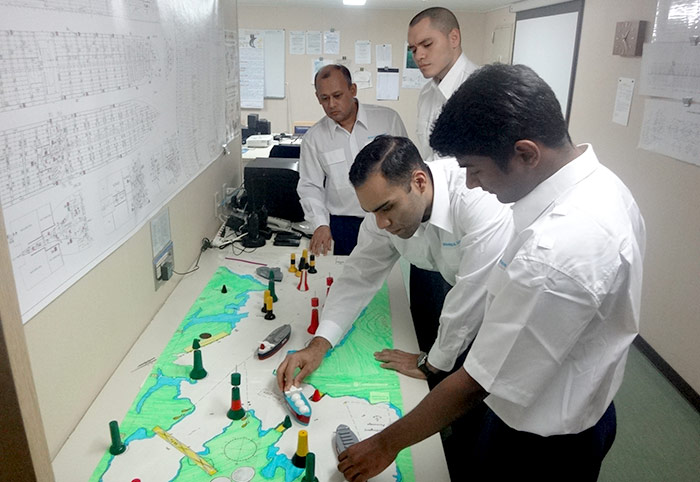
Institution of a Unique Seafarer Education and Training Program - MOL Rank Skill Training & Evaluation Program -
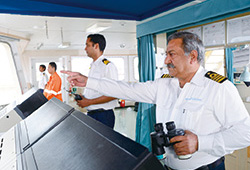
MOL has established the "MOL Rank Skill Training & Evaluation Program (MOL Rank STEP)," a training and education program that sets skill and knowledge requirements for every front-line seafarer according to his/her position. Every MOL Group seafarer must work through this program as a requirement for promotion. In 2012, the efficacy of this proprietary program was recognized, with both the tanker and LNG carrier divisions receiving certification from Norway's Det Norske Veritas AS (DNV) for conformance to the standards of its Competence Management System (CMS).
- Sustainability TOP
- Message from the Chief Sustainability Officer
- Sustainability
Management - Value Creation
Stories - Safety & Value
- Environment
- Human & Community
- Innovation
- Governance
- Stakeholder
Engagement - Sustainable Finance
- Sustainability Data
- ESG Disclosure
Guideline Indexes - External Recognition
- Library




